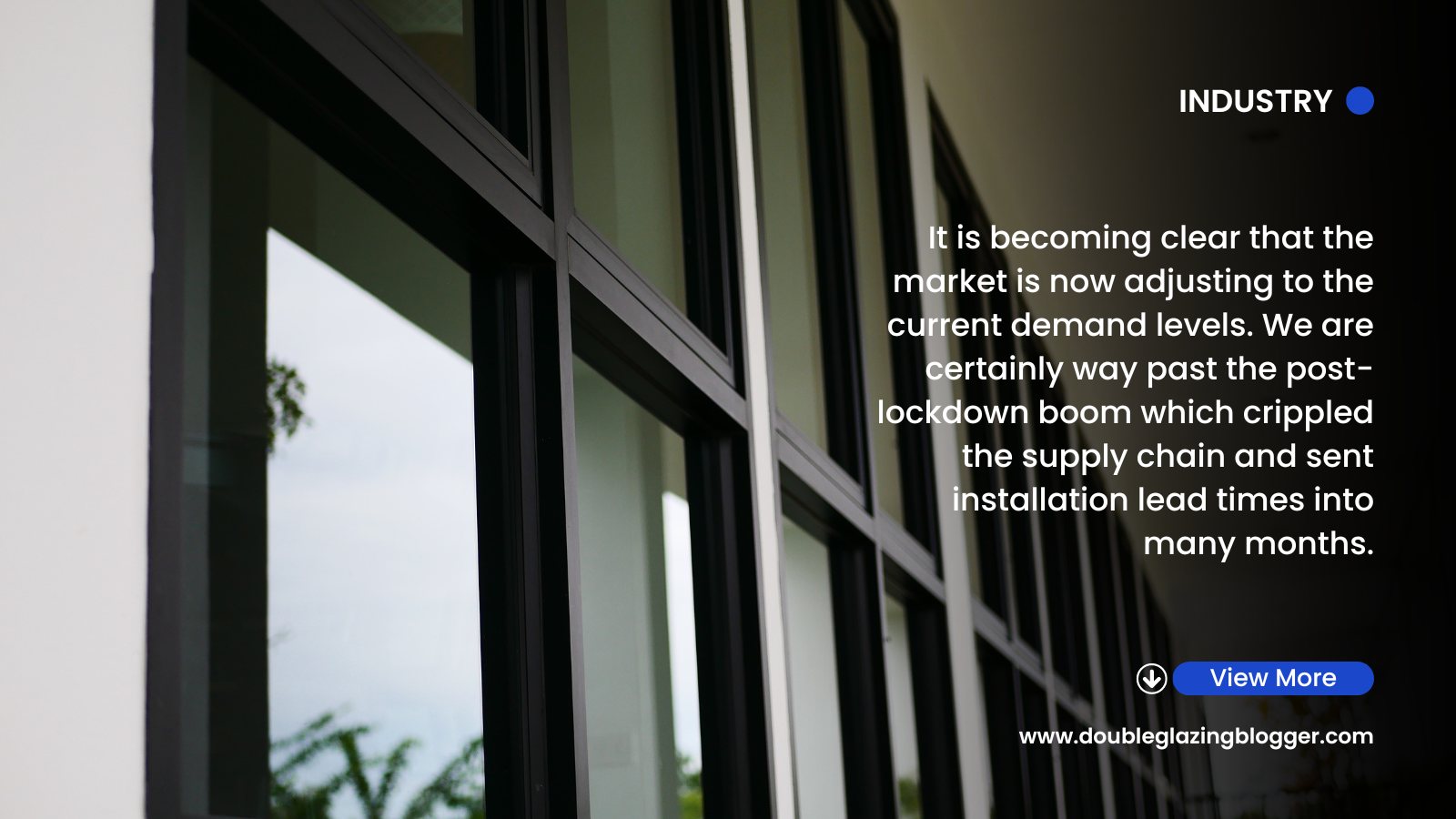By the time we got to April, I am sure many of us would have hoped we would have moved on to the next phase of the B-word and start to focus on other issues within our industry. I fear that the longer this goes on, the more it will consume our media viewing habits, indeed perhaps everything is now at risk of being viewed through the prism of Brexit.
There are other very major issues at hand for the UK window and doors industry, and perhaps the single most important remains the skills shortage. So little has been talked about this in the past couple of months, being drowned out by the obvious talking point just as other issues have as well.
But it hasn’t gone away, and the skills gap we currently have remains a deadly threat to our industry that absolutely has to be remedied. So I’m going to talk about that today, and a couple of ways to try and help reverse course on it.
Communication
Our industry has never really been good at communicating with the general public. It’s OK at talking to itself, on a B2B level, but when it comes to the home owner it has been up to the national installers to fly the banner, usually on TV. Perhaps because they’re one of the few companies that have the budget to spend on such things. But they are not a good example of our industry as a whole, as they represent just themselves and the particular part of the market they operate in.
The problem is, they are are noisy few, not the majority. All the while, the rest of the industry at large over the years has been pretty apathetic in reaching out to the general public. At least in the same big, concerted way the national installers have. What that has allowed is the negative perception of our industry to take root, become embedded and is probably immovable now. This is something that has taken decades to cultivate, and we continue to find ourselves fighting against that negative perception against a backdrop of chronic skilled labour shortages and youth. Not a great mix.
That apathy and negative view of our industry formed many years ago. That however was in an age without social media and the internet. Two amazingly powerful, and free, tools that our industry must make the most of in order to demonstrate to the home owner that our industry is far more than a few major companies who shout the most and loudest.
One of the biggest hurdles we face as a sector to overcome the skills gap is the negative perception we have. Ask yourself this: when you were leaving school, did you envisage a career in windows and doors? No, you probably didn’t, and the thought of it probably turned you well and truly off. Yet here we all are, some of us making a pretty good living out of it as well. Instead of school leavers looking at our industry as an unattractive prospect, we should be working far harder, together, and across all platforms, to send a message to the public. A message that says this industry is one you can prosper in. One you can climb the ladder in. One in which you can earn good money. An industry that offers different challenges and experiences. That we’re an industry full of good companies, not just the bad ones you hear about on TV. Why? Because all of that is true. There are bags of good companies out there. A hugely varied jobs market too. Career progression is happening in our industry.
If we can start communicating that to the next generation of workers, then perhaps opinion might change. But it has to be concerted and across every possible type of media.
Pay more
I mentioned that the money in this industry is good. Generally speaking that is true, but only when you pass a certain level of employment and reach certain positions. If we’re to attract young workers in our industry to fill the positions we require that are at the start of the career ladder, we’re going to have to bit the bullet and pay more.
I want to use a different sector in a different country to illustrate my point. In the US in recent years the retail sector has been suffering a similar problem the window and door sector has had in that they have really struggled to attract workers to the market. In an effort to turn things around, they went to the one thing that motivates the most, and that is money. Some of the largest retailers in the US, the likes of Walmart, Amazon and Target raised their minimum wages to attract people to their sector. It worked. That tactic has now sparked something remarkable – a minimum wage war in that companies are now competing for each other’s workers by offering higher and higher wages. Looking on as an outsider, there’s seems to be fewer complaints now about the lack of workers.
Now I’m not saying that our industry needs to drag itself into a wage war, but we should be looking at this as an example of what happens when you raise the wages on offer for the lower positions in our industry. There was an industry in dire need of people, they offered to pay more, and they came. This should be something our industry should be looking at, more specifically at the types of jobs at the start of the career path.
I understand that this might not come as an attractive option to some companies, but there are fewer and fewer choices that look workable to me. Apprenticeships, whilst a good way to train new young talent, will not create anywhere near a big enough talent flow to service the levels that we need. I mentioned that we need to increase our communication to the public, but that will only go so far, it has to be backed up by good pay. What I would say to businesses is that they should pass the price increases caused by better wages down the supply chain to the installer and then the home owner. Our industry, as I mentioned in a previous post, is way overdue for some inflation on prices, and the UK consumer can quite feasibly handle a few extra percent on the cost of their new windows and doors.
We have only a few routes available to turn around the skills gap, all of them involve hard work and putting hands in pockets to pay for it. It has to be done, and has to be done now.
To get weekly updates from DGB sent to your inbox, enter your email address in the space below to subscribe:
By subscribing you agree to DGB sending you weekly email updates with all published content on this website, as well as any major updates to the services being run on DGB. Your data is never passed on to third parties or used by external advertising companies. Your data is protected and stored on secure servers run by Fivenines UK Ltd.






